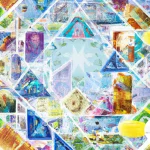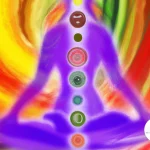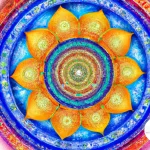Numerology has long played a fascinating role in shaping belief systems around the world. In Africa, this ancient practice holds a significant place in cultural traditions and everyday life. The impact of numerology on African cultural beliefs and practices is a subject that evokes both curiosity and wonder. From the historical origins of numerology in Africa to its influence on rituals, ceremonies, and naming traditions, numerology has woven itself into the very fabric of African society. It extends beyond personal and social relationships, permeating economic, financial, spiritual, and superstitious aspects of life. This article aims to explore the multifaceted integration of numerology within African culture, shedding light on its profound impact and significance.
Numerology in African Cultural Beliefs
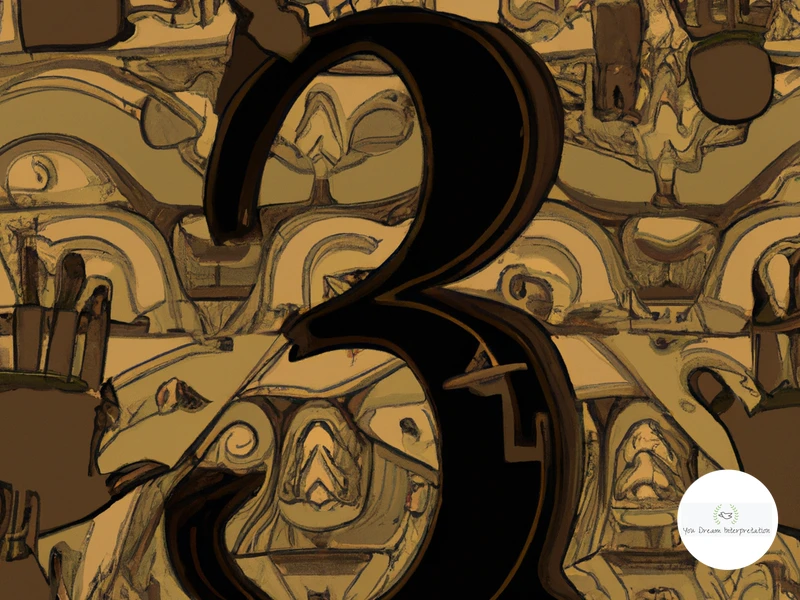
Numerology is deeply embedded in the cultural beliefs of Africa, shaping the way people perceive and navigate the world around them. The history of numerology in Africa is rich and complex, with roots that can be traced back to ancient civilizations. Numbers hold immense significance in African culture, believed to possess unique vibrations and energies that can influence various aspects of life. The interpretation of numbers often varies between different African tribes and societies, but there is a common belief in their ability to reveal insights into one’s character, destiny, and even the spiritual realm. From birth dates to the number of children in a family, numerology is intricately woven into the fabric of African cultural beliefs and practices, guiding individuals in their decision-making processes and offering a sense of guidance and connection to the divine.
1. History of Numerology in Africa
The history of numerology in Africa is a captivating journey that spans centuries. Numerological practices in Africa can be traced back to ancient civilizations such as Egypt, where numbers were believed to embody mystical and spiritual meanings. The ancient Egyptians developed a complex system of numerology, utilizing numbers to decipher the secrets of the universe and guide their daily lives. This numerical knowledge and belief system spread across the African continent, becoming deeply ingrained in various cultures and traditions. In West Africa, the Yoruba people developed a system called “Ifa” that includes divination techniques based on numerical symbolism. This system, still widely practiced today, uses a divination board known as “Opon Ifa” and a set of 256 symbols called “odu” to interpret the messages of the spirit world. Numerology also played a significant role in the practices of the Dogon people of Mali, who believed that numbers were a key to understanding the universe and connecting with ancestral spirits. The oral traditions and teachings passed down through generations have kept the rich history of numerology in Africa alive, as it continues to shape cultural beliefs and practices in modern times.
2. Significance of Numbers in African Culture
In African cultures, numbers hold deep significance and are believed to carry powerful vibrations and energies. Each number is associated with specific meanings and symbolism, influencing various aspects of life. Here are some examples of the significance of numbers in African culture:
1. Unity and Wholeness: The number 1 symbolizes unity and represents the idea of wholeness. It is associated with the concept of oneness and the interconnectedness of all things in the universe.
2. Dualities and Balance: The number 2 represents dualities, such as male and female, light and dark, or yin and yang. It signifies the importance of balance and harmony in life and relationships.
3. Divine Guidance: The number 3 is often seen as a divine number across many African cultures. It is associated with the Holy Trinity and represents the power of creation, manifestation, and spiritual guidance.
4. Stability and Foundation: In African culture, the number 4 signifies stability and the foundation upon which everything is built. It represents the four cardinal directions (north, south, east, and west) and the four elements (earth, air, fire, and water).
5. Transformation and Change: The number 5 symbolizes transformation and change. It represents the ability to adapt and evolve, as well as the dynamic nature of life itself.
6. Family and Community: In many African cultures, the number 6 holds strong significance related to family and community. It represents harmony, cooperation, and the importance of social connections.
7. Spirituality and Mysticism: The number 7 is associated with spirituality and mysticism in African culture. It is often seen as a sacred number that represents intuition, inner wisdom, and spiritual growth.
8. Prosperity and Abundance: The number 8 carries the energy of prosperity and abundance. It symbolizes financial success, material wealth, and the ability to manifest one’s desires.
9. Completion and Fulfillment: The number 9 represents completion and fulfillment. It signifies the end of a cycle and the beginning of a new phase. It is also associated with wisdom and spiritual enlightenment.
These are just a few examples of the significance of numbers in African culture. The interpretations may vary between different tribes and regions, but the belief in the power and influence of numbers remains a fundamental aspect of African cultural beliefs and practices. Numerology plays a vital role in guiding individuals, communities, and even nations, shaping their decisions, relationships, and understanding of the world. To further explore numerology’s impact on relationships, you can read about the importance of numerology in compatibility in love relationships.
Numerology in African Practices
Numerology not only informs African cultural beliefs, but it also plays a prominent role in various practices across the continent. Rituals and ceremonies in African societies often incorporate numerological elements, such as the use of specific numbers or the timing of events based on auspicious dates. Additionally, numerology heavily influences the naming traditions of African communities, where names are chosen based on the numerological vibrations they carry. Divination and predictions, another significant aspect of African practices, frequently rely on numerological calculations to provide insights into the future and guide decision-making processes. Numerology in African practices is a versatile tool that helps individuals connect with their heritage, make important life choices, and seek guidance from the spiritual realm in their day-to-day lives. Through these practices, Africans embrace the power of numbers and their resonance in shaping personal and communal experiences.
1. Rituals and Ceremonies
Rituals and ceremonies form an integral part of African cultural practices, and numerology plays a significant role in these sacred events. In many African societies, specific numbers hold symbolic meaning and are believed to have spiritual and supernatural powers. During rituals and ceremonies, such as weddings, funerals, or coming-of-age ceremonies, numerology is consulted to determine auspicious dates and times. The selection of these dates relies on the interpretation of numbers, aligning them with astrological events and personal numerological profiles. For example, a couple may consult a numerologist to find a date for their wedding that aligns with their life path numbers or explore the compatibility of their life path numbers to ensure a harmonious union. The use of numerology in rituals and ceremonies serves not only to bring blessings and positive energy but also to establish a deeper connection with ancestral spirits and the divine forces. It provides a framework for understanding the significance of numbers in the context of these sacred events, and their integration adds a profound layer of meaning and spirituality to the rituals and ceremonies of African culture.
2. Naming Traditions
Naming traditions hold a special place in African culture, and numerology plays a significant role in the process of naming a child. In many African societies, names are chosen based on the numerical vibrations they carry. Each letter of the alphabet is assigned a specific numerical value, and these values are calculated to determine the total numerical vibration of a name. This total is believed to have a profound influence on a person’s character, destiny, and life path. Parents often consult with numerologists or spiritual leaders who specialize in numerology to guide them in selecting a name for their child. They consider factors such as the child’s birth date, the desired energy or qualities they want the name to reflect, and cultural or ancestral significance. The chosen name is seen as a powerful tool that shapes the child’s identity and helps them align with their purpose in life. African naming traditions rooted in numerology not only provide a sense of individuality but also connect the child to their lineage and cultural heritage. It is believed that a well-chosen name can bring blessings, protection, and success throughout one’s life.
3. Divination and Predictions
In African culture, divination and predictions play a pivotal role in seeking guidance and understanding the future. Numerology is often utilized as a tool for divination, where numbers are assigned specific meanings and interpretations. Diviners, or spiritual practitioners, use various methods such as casting or reading numbers to uncover insights into an individual’s life path, relationships, and potential outcomes. These divination practices are deeply rooted in the belief that numbers hold a sacred power to connect with higher realms and provide glimpses into the spiritual forces at play. Numerological divination in Africa is not limited to personal matters but also extends to communal decisions, such as predicting the success of a harvest or the outcome of important social events. While the specific techniques and practices of divination may vary across different African cultures, the underlying belief in the power of numbers to reveal hidden truths and guide decision-making remains consistent. It is through divination and the interpretations of numerology that individuals and communities seek clarity, foresight, and a deeper understanding of their journey in life.
Integration of Numerology in African Life
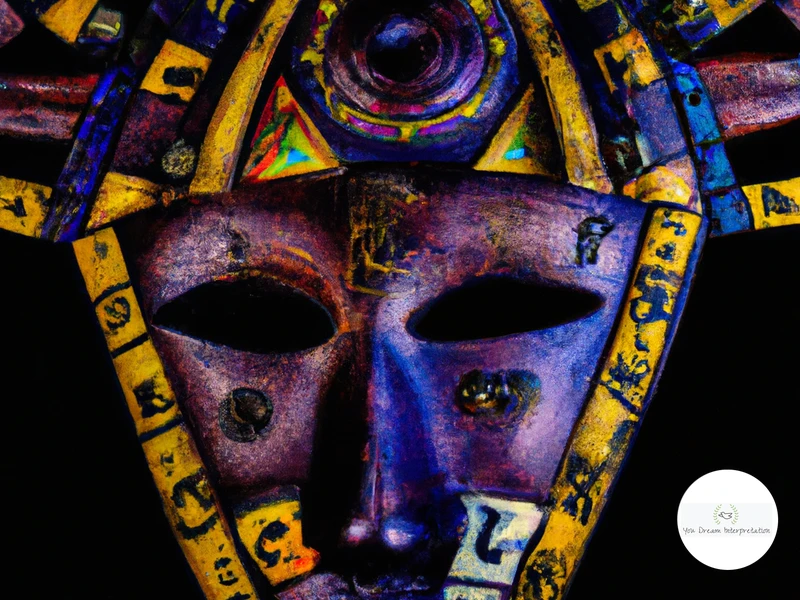
Numerology does not remain confined to abstract beliefs and practices in Africa but seamlessly integrates into various aspects of daily life. One significant area where numerology influences African society is in personal and social relationships. Numerological compatibility is often considered when forming partnerships or marriages, with individuals seeking alignment of life path numbers to ensure a harmonious union. Financial decisions are also influenced by numerology, as individuals believe certain numbers bring luck and prosperity, while others may signal potential financial challenges. Additionally, spirituality and superstition play a vital role in African culture, and numerology provides a framework for understanding and interpreting signs and omens. The integration of numerology in African life is a testament to the enduring power of this ancient practice, permeating both practical and mystical dimensions.
1. Numerological Influences on Personal and Social Relationships
Numerology has a profound influence on personal and social relationships within African culture. The belief in numerological compatibility plays a significant role in determining the compatibility and success of relationships. Individuals often consult numerology to assess the compatibility of potential partners based on their life path numbers or birth dates. These numbers are believed to hold distinct energies and vibrations that can either harmonize or clash with each other. Additionally, numerology is utilized to gain insights into the dynamics of relationships and to understand the strengths and challenges that individuals may face when interacting with one another. It provides a framework for understanding the compatibility of individuals, fostering a deeper appreciation for the unique qualities that each person brings to a relationship. Whether it is a romantic partnership, a friendship, or a professional collaboration, numerology offers guidance on how to navigate and enhance personal and social relationships. It provides a language through which individuals can understand and appreciate the intricacies of their connections, fostering understanding, empathy, and harmony. Through numerology, individuals gain a deeper understanding of themselves and others, enabling them to build stronger and more fulfilling relationships. [^/compatibility-of-life-path-numbers-relationships/]
2. Economic and Financial Beliefs
In African culture, numerology not only influences personal and social aspects of life but also extends its impact to economic and financial beliefs. Numbers play a crucial role in determining financial success, prosperity, and abundance. Many African societies believe that certain numbers are inherently lucky and can attract wealth, while others are considered unlucky and should be avoided when making financial decisions. For example, the number eight is often associated with wealth and prosperity due to its resemblance to the infinity symbol. This belief in the power of numbers extends to business practices as well. Entrepreneurs and traders will often consult numerologists to determine auspicious dates and times for launching a new business, signing contracts, or embarking on important financial ventures. Additionally, individuals may use numerology to calculate their life path number or explore their sun signs to gain insights into their financial strengths and weaknesses. Understanding these numerical influences allows individuals to make informed decisions and navigate the world of finance with confidence and foresight. Ultimately, numerology in economic and financial beliefs offers a unique perspective on wealth creation and financial well-being, adding another layer of depth to the African cultural landscape.(1-74)
3. Spiritual and Superstitious Aspects
Numerology plays a significant role in the spiritual and superstitious aspects of African culture. Many African communities believe that numbers have a direct connection to spiritual energies and can influence various aspects of life. Certain numbers are considered auspicious, while others are regarded as unlucky. For example, the number 7 is often associated with spirituality and divine connection, while the number 13 is seen as unlucky and brings bad fortune.
Superstitions surrounding numbers are prevalent in African societies. People may avoid specific numbers or change their plans based on numerological beliefs. For instance, some individuals may refuse to travel or make important decisions on dates that add up to an unlucky number. Numerology also influences customary practices, such as the timing of rituals or ceremonies. It is common for traditional African healers and spiritual leaders to consider numerological aspects when performing rituals or providing guidance.
Numerology intertwines with astrology and the interpretation of celestial bodies. Africans often consult numerology and astrology to gain insights into their life paths, compatibility in relationships, and even financial prospects. These systems help individuals understand their strengths, weaknesses, and potential life challenges.
Incorporating numerology into spiritual beliefs and superstitious practices creates a sense of guidance, protection, and connection to the divine. This belief system has a significant impact on decision-making processes, influencing personal choices, and how individuals navigate their daily lives. It is fascinating to witness how numerology continues to shape the spiritual and superstitious aspects of African culture, providing a framework for understanding the world and interpreting the unseen forces at play.
Conclusion
In conclusion, the impact of numerology on African cultural beliefs and practices is undeniable. Throughout history, numerology has played a significant role in shaping African societies by providing a framework for understanding the world and one’s place within it. The historical roots of numerology can be seen in various African civilizations, where numbers were revered for their symbolic and spiritual meanings. Numbers are believed to possess vibrations and energies that can influence different aspects of life, from personal relationships to financial decisions and even spiritual connections. By integrating numerology into rituals, ceremonies, and naming traditions, Africans have found a way to connect with their ancestral heritage and gain insights into their own identity and destiny. Numerology is deeply ingrained in personal and social relationships, economic and financial beliefs, as well as spiritual and superstitious aspects of African life. It serves as a guiding force, providing individuals with a sense of purpose, direction, and connection to the divine. Exploring the significance of numerology in African culture opens up a realm of understanding and appreciation for the profound influence it has had on the lives of countless individuals throughout the continent. To delve deeper into the fascinating world of numerology and its impact on various aspects of life, you can explore the connection between sun signs and life path numbers to gain a deeper insight into personal compatibility and relationships.
Frequently Asked Questions
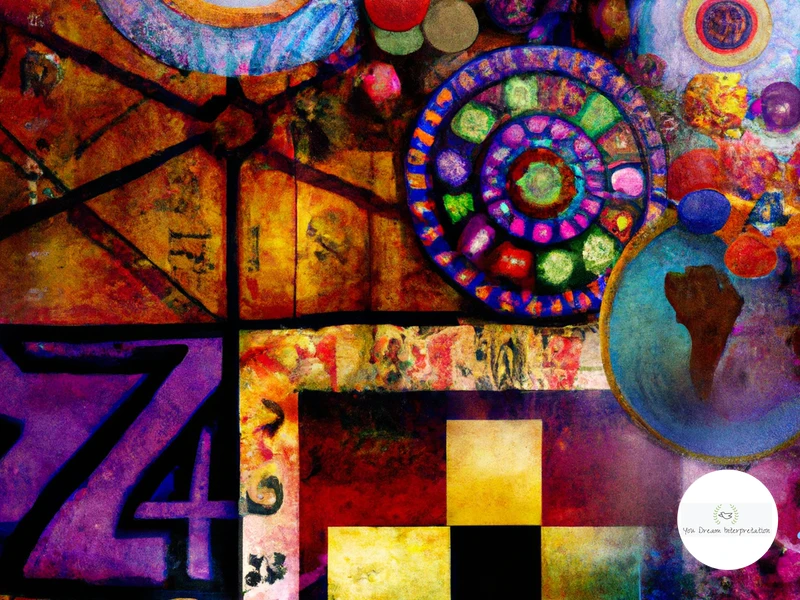
1. How long has numerology been a part of African cultural beliefs?
Numerology has been a part of African cultural beliefs for centuries, with its roots stretching back to ancient civilizations.
2. Are there different interpretations of numbers in African numerology?
Yes, different African tribes and societies may have varying interpretations of numbers, although there are also common themes and beliefs.
3. What role does numerology play in African rituals and ceremonies?
Numerology often plays a significant role in African rituals and ceremonies, guiding the timing, symbolism, and overall spiritual significance of these events.
4. How do African naming traditions incorporate numerology?
African naming traditions often involve choosing names that hold numerical significance, reflecting the desired attributes or destiny associated with a particular number.
5. Can numerology be used for divination and predictions in African culture?
Yes, numerology is frequently used for divination and predictions in African culture, providing insight into various aspects of life and the future.
6. How do numerical influences impact personal and social relationships in Africa?
Numerical influences are believed to have an impact on personal and social relationships in Africa, influencing compatibility and providing insights into relationship dynamics.
7. Are there economic and financial beliefs influenced by numerology in Africa?
Yes, numerology often influences economic and financial beliefs in Africa, shaping decision-making processes and business practices.
8. What are the spiritual aspects of numerology in African culture?
In African culture, numerology is intertwined with spiritual beliefs, connecting individuals to their ancestors, guiding spiritual practices, and providing a deeper understanding of the divine.
9. Are there superstitious beliefs associated with numerology in Africa?
Yes, there are various superstitious beliefs associated with numerology in Africa, such as considering certain numbers as lucky or unlucky, and avoiding specific numerical combinations.
10. How does numerology contribute to the overall fabric of African life?
Numerology is an integral part of African life, influencing various aspects such as decision-making, personal identity, cultural traditions, and the understanding of the interconnectedness of the universe.
References
- Significant Numbers in Africa
- South African traditional values and beliefs regarding …
- Numbers Around the World: How Different Cultures …
Frequently Asked Questions

1. What is the origin of numerology in Africa?
Numerology in Africa has deep historical roots, stemming from ancient civilizations such as Egypt, Nubia, and Mali. It has evolved and been passed down through generations, becoming intertwined with various African cultural beliefs and practices.
2. How do numbers hold significance in African culture?
Numbers are considered powerful symbols in African culture, representing specific meanings and energies. They are believed to influence various aspects of life, including personal destinies, relationships, and even events in the natural world.
3. What role does numerology play in African rituals and ceremonies?
Numerology plays a significant role in African rituals and ceremonies, serving as a guide for the timing and sequencing of various activities. Numbers are believed to have spiritual significance and are used to invoke blessings, protection, and harmony during these sacred occasions.
4. How are names influenced by numerology in African traditions?
In African naming traditions, names are often chosen based on numerological calculations and symbolic meanings associated with specific numbers. The belief is that the name carries the energy and destiny of the individual, and selecting the right name is crucial for a successful and prosperous life.
5. Can numerology in Africa be used for divination and predictions?
Yes, numerology in Africa is often used for divination and predictions. Numerologists, known as diviners, utilize various numerical calculations and interpretations to gain insight into the past, present, and future. It is believed that numbers can reveal hidden truths and provide guidance for decision-making and life paths.
6. How does numerology influence personal and social relationships in African culture?
Numerology influences personal and social relationships in African culture by providing insights into compatibility, character traits, and potential challenges between individuals. Numerological compatibility is considered important for successful marriages, friendships, and business partnerships.
7. Are there economic and financial beliefs associated with numerology in Africa?
Yes, numerology in Africa does influence economic and financial beliefs. For example, certain numbers may be considered auspicious for business ventures or investment decisions, while others are believed to bring financial misfortune. Understanding these numerological influences can guide African business practices and investment strategies.
8. How do African cultural beliefs view the spiritual aspects of numerology?
In African cultural beliefs, numerology is deeply intertwined with spirituality. Numbers are seen as divine symbols with the power to connect the earthly realm with the spiritual realm. Numerological rituals and practices are used to communicate with ancestors, seek spiritual guidance, and maintain a harmonious balance between the physical and spiritual worlds.
9. Are there any superstitious beliefs associated with numerology in Africa?
Absolutely, numerology in Africa is also associated with various superstitious beliefs. Certain numbers may be considered lucky or unlucky, and people may avoid or seek out specific numbers for various purposes, such as avoiding bad luck or attracting prosperity. These superstitious beliefs often influence daily life decisions, from choosing phone numbers to selecting wedding dates.
10. How does numerology integrate into everyday African life?
Numerology seamlessly integrates into everyday African life, influencing everything from personal choices to cultural traditions. Whether it’s naming a child, planning a wedding, or making important decisions, numerology provides a framework for understanding and navigating the complexities of life, fostering a deep connection with African cultural beliefs and practices.




